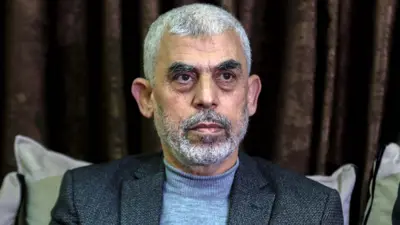We've updated our Privacy and Cookies Policy
We've made some important changes to our Privacy and Cookies Policy and we want you to know what this means for you and your data.
NHS 'faces catch-22' on paying for reform warn auditors
The NHS in Wales faces a "catch-22" situation because its current services are unaffordable - but it may not have enough funds to pay for major reforms either.
That is the warning from a watchdog which said the NHS needs to change to make it cost effective.
The Wales Audit Office said it also needs to reconsider the cost of reform.
Campaigners have urged protection for hospital services, with reviews taking place across Wales.
A WAO report says the NHS needs to save between Β£870m and Β£1bn between 2010-11 and 2014-15.
Auditor General Huw Vaughan Thomas said: "In short, even after the very significant savings already made, the status quo is simply unaffordable and there have to be service changes to secure its long term future."
Some health boards are already preparing plans that could mean some services are centralised in new centres.
But the Wales Audit Office (WAO) says paying for changes may be difficult during a spending squeeze.
And it has warned the cost of planned service changes raises questions about how it will pay for new treatment centres.
It says: "The challenge is that there is a catch-22: the status quo is unaffordable but the process of delivering the reform itself carries a cost that may be difficult to fund.
"There is, therefore, a major challenge for the NHS and Welsh government to identify the costs of reform and the options to fund it."
It supports the Welsh government's intention to provide more funding at the start of the year, ending the need for last-minute financial bailouts.
But it also supports opposition politicians' concerns that LHBs were forced to cut their budgets at the end of the last financial year.
Wales' health service has seen its budget rise every year since devolution, but the report says it now faces the toughest financial settlement of anywhere in the UK.
Capital funding is being cut 36% in real terms.
'Flexible'
Health Minister Lesley Griffiths said: "I am very pleased the auditor general recognises our approach to NHS finance, introducing a more flexible system which removes the dependency on end-year bailouts, is sensible and sustainable.
"I have said consistently NHS managers will be held to account for the financial management of their organisations, and in May this year I thanked NHS Wales for its solid financial performance in 2011/12."
The minister provided four health boards with a lifeline to help them balance the books at the end of the last financial year.
She said Β£288m had been found over the next two years with the expectation that it will put the NHS on a "sustainable financial footing while continuing to deliver high quality public services".
The chair of the assembly's public accounts committee, Darren Millar, said: "The pressure to keep meeting annual financial targets, while simultaneously developing three year service and financial plans to start the process of longer term reform of NHS services, will be unprecedented."
'Scarcity'
Protesters have held demonstrations on the steps of the Senedd, as health boards across Wales consider the long term future of hospitals.
They include campaigners from Llanelli who handed in a 26,000-signature petition calling for the protection of services at the town's Prince Philip Hospital.
Hugh Evans, a retired surgeon from the hospital, said: "I am sure there's a scarcity of resources, a scarcity of funding, but we have got a relatively new build in Llanelli.
"That's a centre of population. If services have to be centralised, that's where they should be centred."
The Welsh government points to a planned Β£20m investment in the hospital between 2014/16 to develop elective care and treatment services, and says Β£6m has been spent on the hospital's breast care unit in recent years
Mrs Griffiths says she doesn't want to see any hospital downgraded, but that the status quo is not sustainable.
Top Stories
More to explore
Most read
Content is not available








